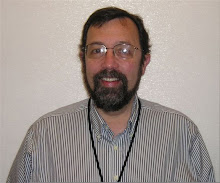In previous posts, I covered the genetic basis for human organizations, and showed how groups self organize in a developmental manner. In this post, I will start the process of looking at the actual framework that will portray how human groups address, or not, the challenges that allows them to organize at higher levels of complexity.
A base dynamic for human organizations seems to be some form of “conflict vs. cooperation”. At each level of organizational complexity this seems to plays out. Can a band cooperate within itself in order to survive (hunt and gather) effectively? Can a city-state trade with others and grow their socio-economic needs peacefully or choose to expand through war?
Using this as a starting point, I am developing a model similar to Erickson's.
In Erickson's epigenetic model, a pattern seems to emerge. At each level of development, the individual struggles with how to be “whole” and in satisfying relationship with others vs. feeling “dis-integrated” and out of harmony with the outside environment.
In work are the analogous headers to these Ericksonian ones:
Stage (age)
Psychosocial crisis (at each age)
Significant relations (at each age)
Psychosocial modalities (at each age)
Psychosocial virtues (at each age)
Mal-adaptations & malignancies (at each age)
The Functionalist school of Cultural Anthropology used this model, based on individual and group needs:
Basic Needs (Individual)
Direct Responses (Organized, i.e., Collective)
Instrumental Needs
Responses to Instrumental Needs
Symbolic and Integrative Needs
Systems of Thought and Faith
Perhaps, an organizational model may something look like this:
Size (Band, Tribe, etc)
Organizational hurdle (at that stage)
Relationships/Leadership required (at that stage)
Developmental Issues (conflict, cooperation)
Presenting Problem of the group
Potential solutions
Existing Organizational Development theory does not address development in an epigenetic manner, even though the field of Cultural Anthropology points to this. If one takes the assumptions I have put forward in “putting the Development in Organizational Development” (see previous blog) as a starting point, and agrees that the stages of development are something like what I have described (Bands, tribes, etc), then the “crises” that human groups face in organizing in increasing complexity can be effectively mapped. What these are related to, the struggles they represent and the “symptoms” that each stage exhibits would be the focus to developing this framework.
Thursday, August 5, 2010
Subscribe to:
Comments (Atom)
